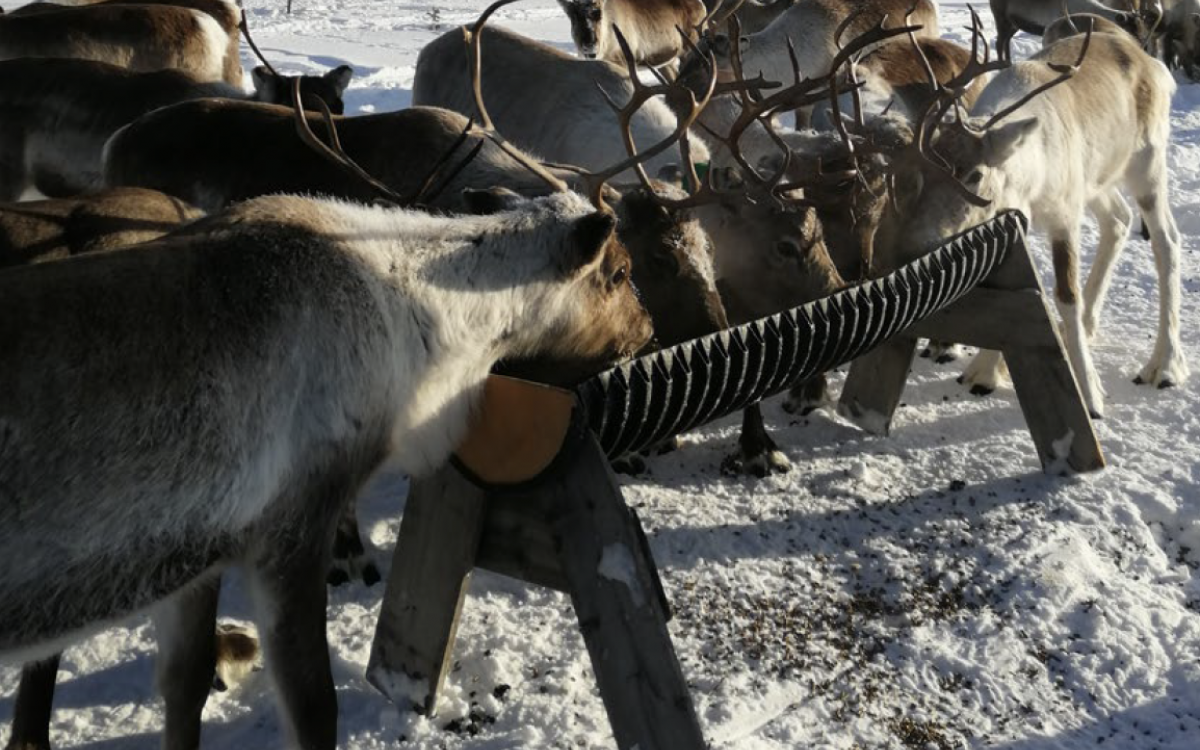– Supplementary feeding of reindeer not a long term solution

Lack of grazing resources has increased the necessity of supplementary feeding. This development is now wanted by herders, due to several unfortunate consequences, shows a new internordic research report.
Supplementary feeding is practiced by reindeer herders when natural grazing resources are unavailable or the grazing conditions are challenging for reindeer. In 2018, reindeer herders from Norway, Sweden and Finland participated in a collaborative workshop, taking place in Kiruna, Sweden. In addition to the herders, researchers with different disciplinary backgrounds, including ecology, anthropology, sociology, geography, political science and veterinary medicine participated.
Results from the workshop i gathered in the report "Supplementary feeding in reindeer husbandry".
For a long time, Nordland Research Institute's Camilla Risvoll has been researching grazing culture and reindeer husbandry. She was one of the main organizers for the workshop. Risvoll think it is important that the reindeer herders' experiences and knowledge are beeing paid attention to.
Because for the herders, supplementary feeding is not considered a long-term solution.
– Major challenges with supplementary feeding are increased disease risks associated with feeding and transmission of infectious of spreading diseases, changes in reindeer behavior as well as the financial burden and workload, says Risvoll.
– Also, increased necessity of supplementary feeding may threaten reindeer husbandry traditions and culture, as well as the intergenerational transfer of experience-based knowledge.
The report lists principal reasons for supplementary feeding as difficult grazing conditions during winter due to ice layers and/or deep snow, presence of carnivores, competition with other forms of land use or lack of grazing resources resulting from these competitions.

